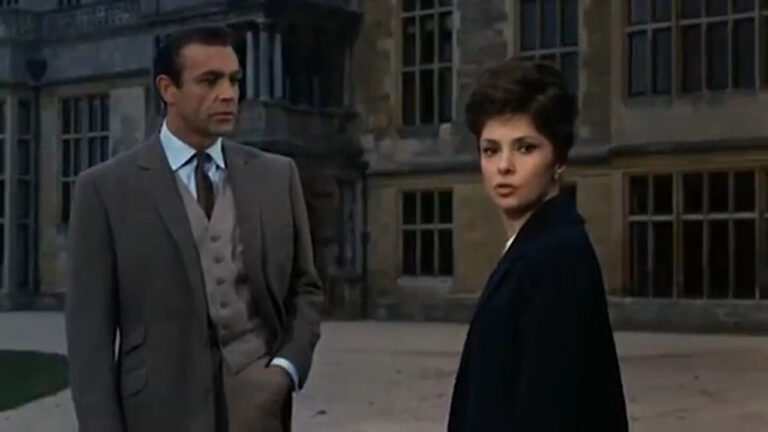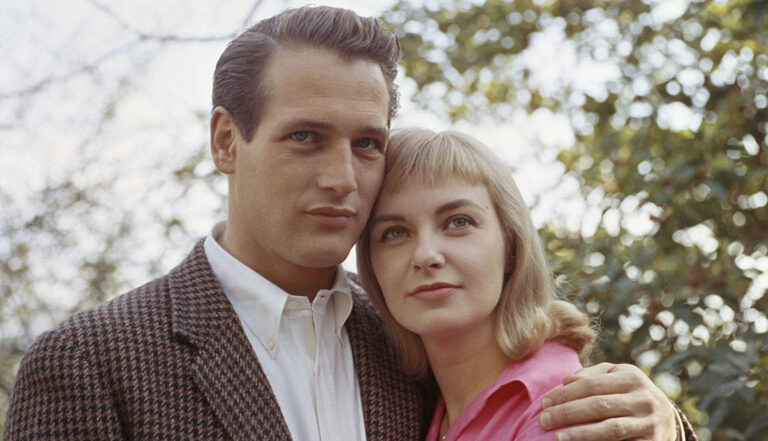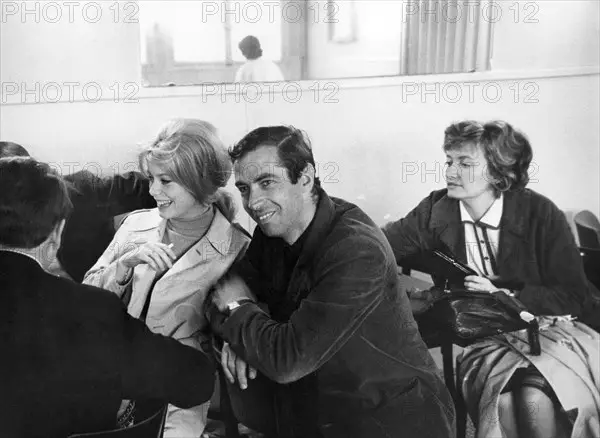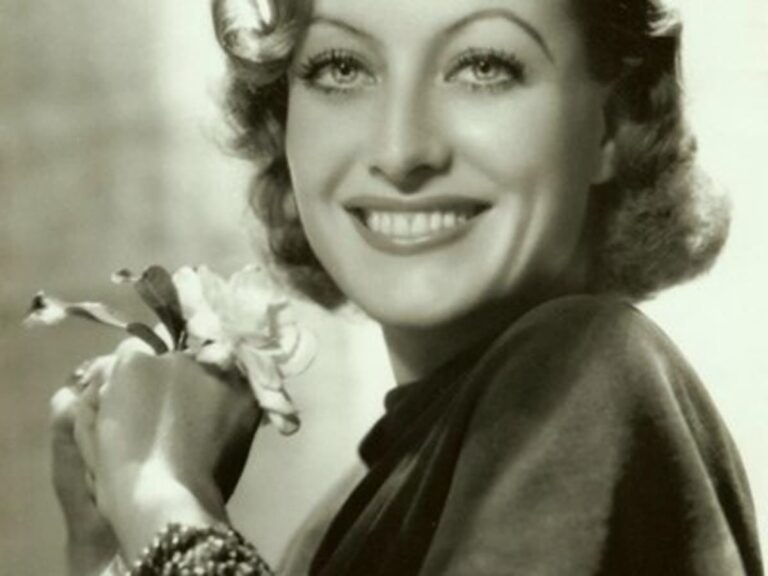Rock Hudson: The Hollywood Heartthrob Who Redefined Stardom
Rock Hudson, born Roy Harold Scherer Jr. on November 17, 1925, was one of the most iconic actors of Hollywood’s Golden Age. Known for his rugged good looks, charm, and versatility, Hudson captivated audiences with his roles in both dramatic and romantic films. His career spanned over four decades, and despite personal challenges and a life cut short, his legacy in film and television continues to resonate today.
Hudson’s rise to fame is not only a testament to his acting prowess but also to his ability to reinvent the very nature of the Hollywood heartthrob. He was one of the most bankable stars of his time, known for his on-screen chemistry with leading ladies like Doris Day, and he remains an enduring symbol of classic Hollywood glamour.
Early Life and Beginnings in Hollywood
Rock Hudson’s early life was far from glamorous. Born into a working-class family in Winnetka, Illinois, he spent much of his childhood moving between homes. His father was an alcoholic, and his mother struggled to provide for him. As a teenager, Hudson’s interest in acting led him to attend the Hollywood Professional School, and it was there that he began to pursue his dream of becoming an actor.
Hudson’s early years in Hollywood were filled with challenges. His first film appearance came in 1948 with the movie Fighter Squadron, but it wasn’t until 1954 that he gained real recognition. That year, he starred in Magnificent Obsession, directed by Douglas Sirk, a film that marked the beginning of a long and fruitful collaboration between the two. It was in Magnificent Obsession that Hudson began to truly showcase his talents, moving from a mere handsome face to a capable dramatic actor.
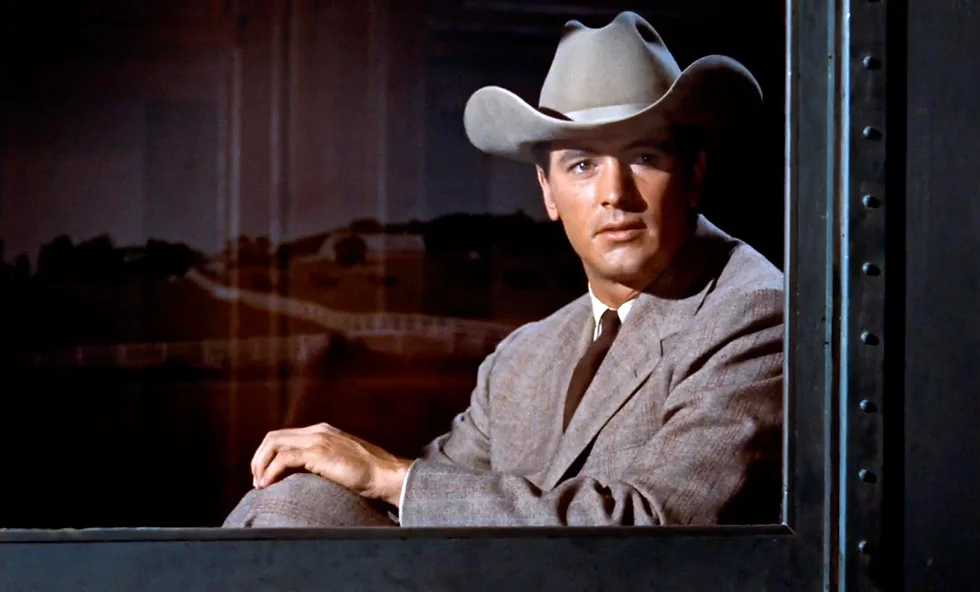
Rise to Stardom and Iconic Roles
Hudson’s role in Magnificent Obsession led to his casting in another major film, All That Heaven Allows (1955), also directed by Sirk. The two films, along with Written on the Wind (1956), marked Hudson’s peak years as a romantic leading man. His striking good looks, deep voice, and suave demeanor made him the perfect foil for some of the biggest female stars of the time, including Jane Wyman, Doris Day, and Elizabeth Taylor. He became a consistent box-office draw, with films such as Pillow Talk (1959) and Lover Come Back (1961) showcasing his impeccable comedic timing alongside Doris Day. The chemistry between the two was undeniable, making them one of the most beloved on-screen duos of the era.
Hudson’s work in Giant (1956), directed by George Stevens, is often regarded as his finest performance. The film, which also starred Elizabeth Taylor and James Dean, earned Hudson an Academy Award nomination for Best Actor and cemented his place among Hollywood’s elite. His portrayal of the ambitious, troubled oil tycoon Jett Rink allowed him to demonstrate his full acting range, marking a turning point in his career.
The Changing Face of Rock Hudson: From Heartthrob to TV Star
As the 1960s rolled on, Hudson’s career began to shift. While he remained a star in Hollywood, the industry itself was changing, with a move toward more youth-oriented stars and the rise of the counterculture. Hudson, who had built his career on playing handsome, rugged men in romantic comedies and dramas, had to adapt to this changing landscape.
In the 1970s, Hudson transitioned to television, where he found success in the hit series McMillan & Wife (1971–1977). Playing the role of a wealthy and charming police commissioner, Hudson proved that he still had the charisma and talent to entertain audiences, even as tastes and preferences evolved. His work on television brought him a new generation of fans, and McMillan & Wife became one of the most popular TV shows of its time.
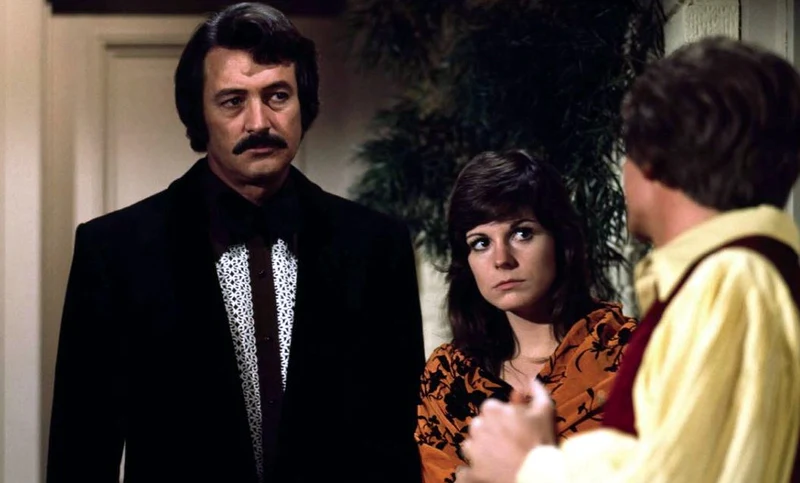
Personal Life and Legacy
Rock Hudson’s personal life, however, remained shrouded in secrecy for much of his career. Hudson was known for being extremely private about his sexuality, particularly in an era when homosexuality was often stigmatized. His carefully crafted public image as a heterosexual heartthrob was a cornerstone of his success. However, in 1985, at the age of 59, Hudson made headlines when he publicly disclosed that he had been diagnosed with AIDS, becoming one of the first major celebrities to reveal his battle with the disease. His announcement helped to raise awareness about the AIDS epidemic, and it marked a turning point in how the disease was viewed by the public.
Rock Hudson passed away on October 2, 1985, just months after his diagnosis. His death was a tragic loss, but his courage in publicly facing his illness left a lasting legacy. Today, Hudson is remembered not only for his contributions to film but also for his role in the fight against AIDS. His openness about his condition helped reduce the stigma surrounding the disease and raised important awareness about its devastating impact.
Conclusion: A Hollywood Legacy
Rock Hudson’s legacy as a film and television star is secure. From his early days as a handsome leading man to his later years as a television star and AIDS awareness advocate, Hudson’s career transcended the norms of Hollywood stardom. He was much more than just a heartthrob; he was a talented actor with a wide range of roles under his belt and a deep respect for his craft.
Hudson’s journey from being one of Hollywood’s biggest stars to becoming a key figure in the fight against AIDS is a testament to his resilience, character, and dedication to making a difference. His films continue to be loved by fans around the world, and his legacy as an actor, advocate, and trailblazer in the entertainment industry endures.

